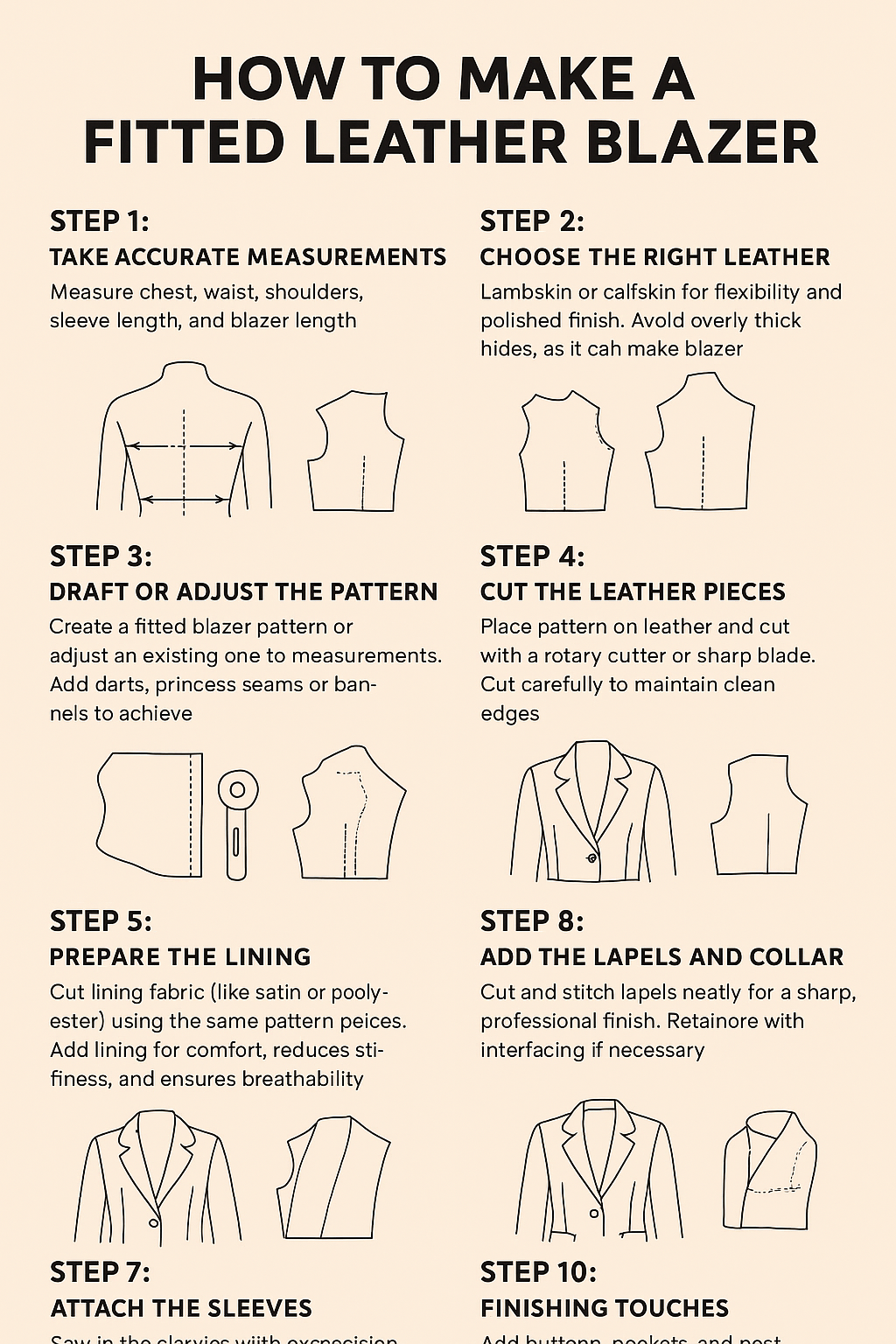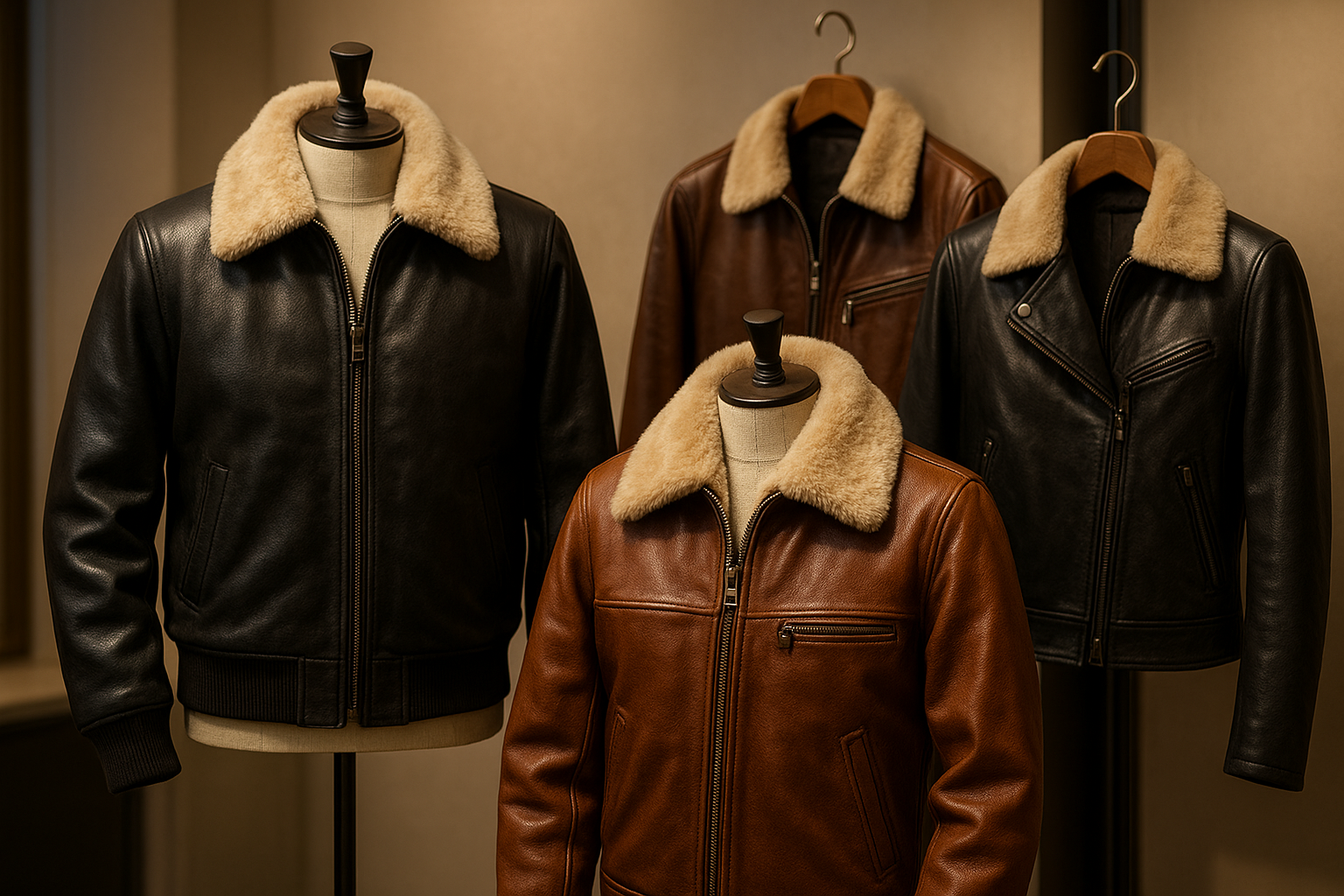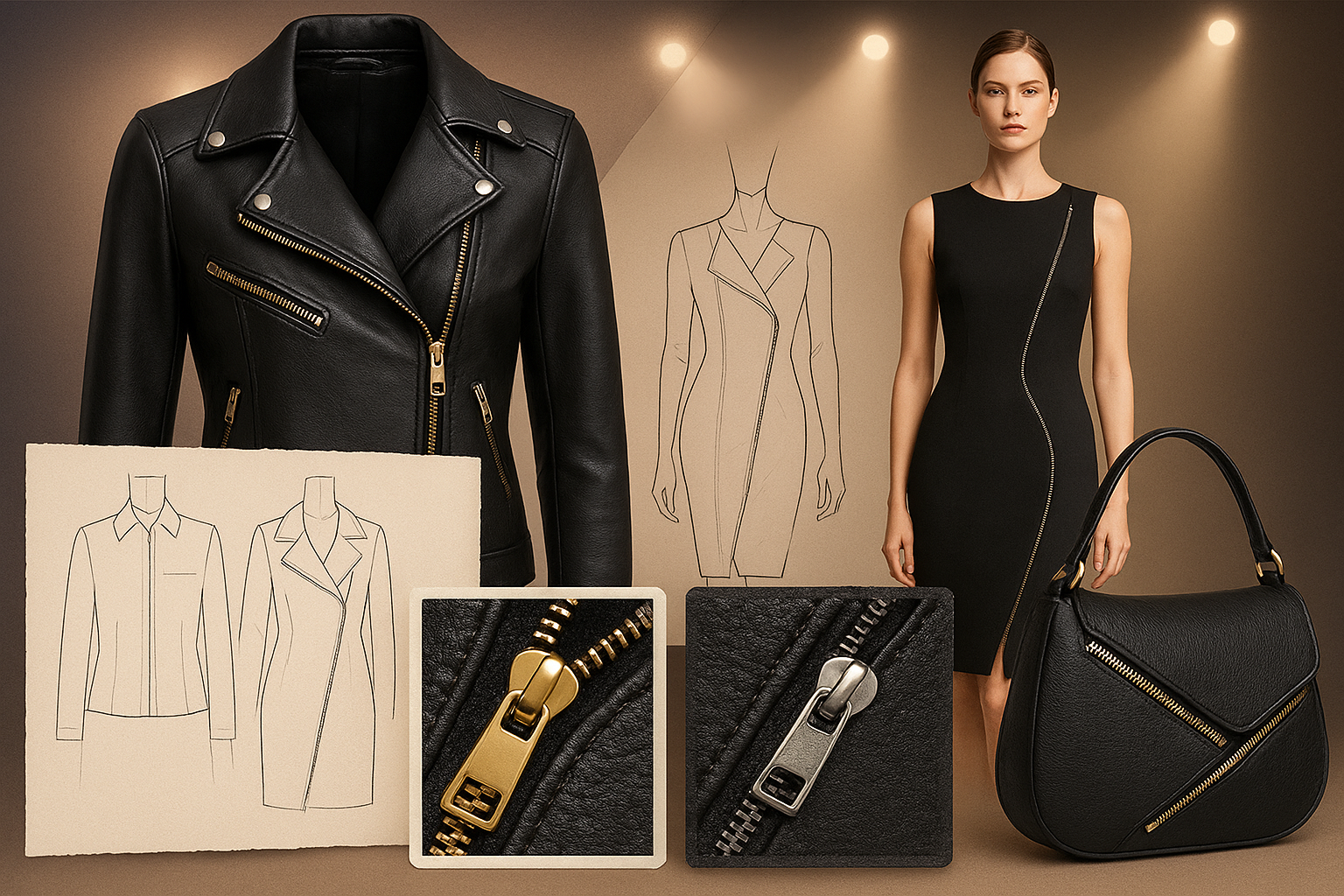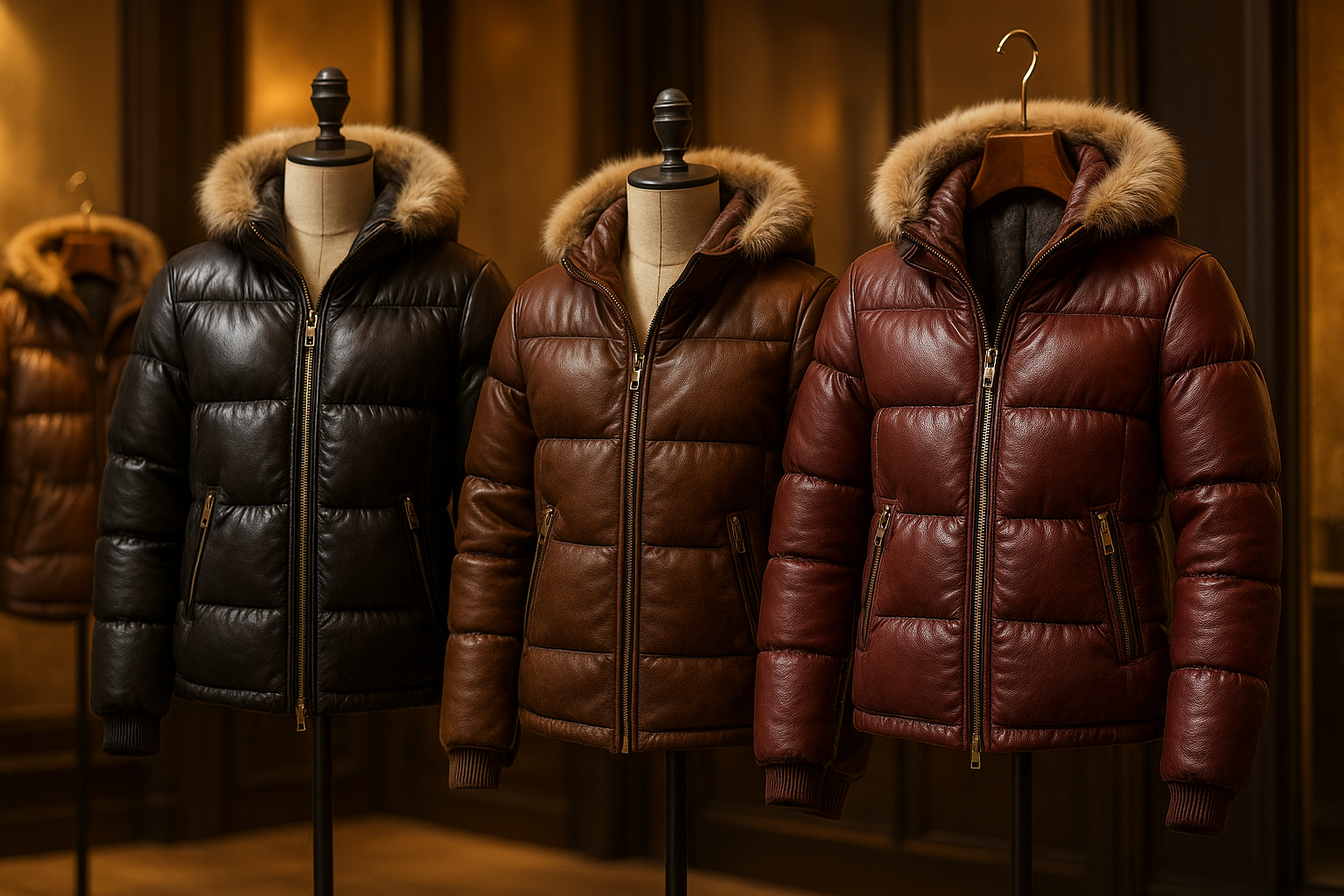Steps to Make a Fitted Leather Blazer
Step 1: Take Accurate Measurements
-
Measure chest, waist, shoulders, sleeve length, and blazer length.
-
Note these down carefully, as precision ensures a tailored fit.
Step 2: Choose the Right Leather
-
Pick lambskin or calfskin for flexibility and a polished finish.
-
Avoid overly thick hides, as they can make the blazer bulky.
Step 3: Draft or Adjust the Pattern
-
Create a fitted blazer pattern or adjust an existing one to your measurements.
-
Add darts, princess seams, or panels to achieve shaping at the waist.
Step 4: Cut the Leather Pieces
-
Place your pattern on the leather and cut with a rotary cutter or sharp blade.
-
Cut carefully to maintain clean edges (leather does not “heal” mistakes).
Step 5: Prepare the Lining
-
Cut lining fabric (like satin or polyester) using the same pattern pieces.
-
Lining adds comfort, reduces stiffness, and ensures breathability.
Step 6: Stitch the Body Panels
-
Start by joining the front, back, and side panels.
-
Use strong polyester thread and a leather needle (or hand-stitch with waxed thread).
Step 7: Attach the Sleeves
-
Sew in the sleeves with precision, ensuring smooth curves and no puckering.
-
A fitted sleeve shape adds elegance to the blazer.
Step 8: Add the Lapels and Collar
-
Cut and stitch lapels neatly for a sharp, professional finish.
-
Reinforce with interfacing if necessary.
Step 9: Insert the Lining
-
Carefully sew the lining inside the blazer, making sure it’s smooth and wrinkle-free.
-
Turn inside out for a polished look.
Step 10: Finishing Touches
-
Add buttons, pockets, and neat topstitching details.
-
Press the seams gently (use a pressing cloth to protect the leather).
✅ Now you have a sleek, fitted leather blazer that balances style and craftsmanship.
FAQs
Q1: What type of leather is best for making a fitted blazer?
A: Lambskin or calfskin leather is ideal for fitted blazers because they’re soft, flexible, and drape beautifully.
Q2: Do I need a lining for a leather blazer?
A: Yes, lining improves comfort, structure, and durability, making the blazer easier to wear and longer lasting.
Q3: Can I make a fitted blazer without a professional sewing machine?
A: While a heavy-duty sewing machine is recommended, you can hand-stitch with strong waxed thread if you have patience and precision.
Q4: How can I achieve a proper tailored fit?
A: Taking accurate body measurements and creating a well-fitted pattern are key steps for a sleek and professional finish.
Q5: What details make a leather blazer look more polished?
A: Adding darts, proper lapels, neat topstitching, and smooth lining elevates the final look of the blazer.












